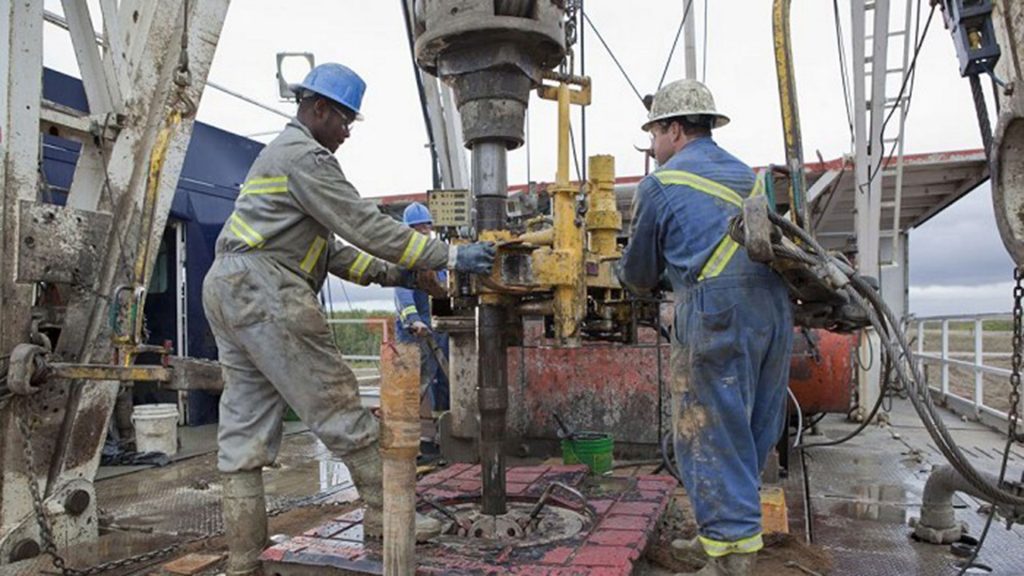 Executive Summary
Executive Summary
The Skills Match—The Energy Fit project had the broad goal of addressing the skills gap in Canada’s energy industry by using innovative tools, namely virtual reality (VR) technology and an interactive website, to facilitate career transitions. Specifically, the project aimed to facilitate career exploration and transitions by engaging mid-career energy workers, youth, Indigenous people, women, immigrants and newcomers across Alberta, British Columbia and Saskatchewan. Its success in engaging these diverse audiences and promoting career opportunities in the energy industry underscores VR’s potential as a learning tool and creates an important opportunity for policy-makers to consider for future funding in skills development and training programs.
Despite challenges posed by the COVID-19 pandemic, the project showcased the effectiveness of VR technology in enhancing learning experiences and skills development. The project’s ability to adapt to unforeseen challenges, effectively engage diverse demographic groups and foster strong partnerships underscores the importance of flexibility, audience understanding, the need to tailor strategies to different engagement environments, and collaboration in achieving project success.
Key Insights
The website greatly surpassed its goal of 10,000 users; between October 2021 and May 2022, 60,000 users (a notable portion being woman) visited the website.
The VR experience engaged over 3,000 users, but contrary to what project partners anticipated, younger participants showed less interest in VR technology, while newcomers were more likely to appreciate it.
The project found that smaller focus groups were more effective than larger career fairs for gathering feedback from users to improve the VR experiences.
 The Issue
The Issue
The energy sector needs a more resilient and adaptable workforce capable of thriving in a rapidly changing industry, but there is a lack of accessible and comprehensive information on job opportunities, qualifications and skills required in the energy industry. This problem is exacerbated by economic downturns, changing work arrangements, an aging demographic, and technological advancements. Previous attempts at solving this issue fell short in providing engaging and interactive resources for career exploration and transition, highlighting the need for innovative approaches, like VR technology and interactive tools, to support workers effectively. In addition, diverse groups of people both within and outside the energy sector face barriers to entry and progression, limiting the sector’s ability to diversify its workforce and resolve its skills and labour challenges.

 What We Investigated
What We Investigated
This project aimed to bridge the gap between unemployed and underemployed job seekers and available opportunities by profiling careers in the sector and connecting individuals with tools to understand their potential in the industry. By leveraging digital technologies to facilitate learning opportunities and support career development in the energy sector, the project sought to empower diverse workers to explore new career opportunities, enhance their skills and navigate career transitions effectively.
The project engaged stakeholders, compiled relevant data and created interactive resources to support career exploration and development. The project created advanced VR experiences to test users’ aptitudes for transferable occupations and developed an interactive website to guide users through their career transitions. The project’s defining phase focused on creating an interactive website, Careers in Energy, that offered comprehensive research, interactive resources and tools for job seekers. The website aimed to shift assumptions about opportunities in the energy sector, profile transferable careers and connect individuals with the next steps in their transitions.
 What We’re Learning
What We’re Learning
Over the course of the project, more than 3,000 participants, including mid-career energy workers, youth, Indigenous people, women, immigrants and newcomers to Canada, engaged with the VR experiences. Approximately 60,000 users engaged with the website between October 2021 and May 2022, 43% of whom identified as female.
Virtual reality may be more beneficial to newcomers than to youth
Project partners anticipated that youth would be the primary users of the developed VR technology based on assumptions about their familiarity with it. Over the course of the project, the most positive feedback on the VR experience came from newcomers, many of whom had limited information about the energy sector. Feedback from workshops and exploration sessions indicated a strong intent among participating newcomers to pursue careers in the industry after interacting with the VR tools and website. This learning highlights the importance of testing assumptions about target audience needs and preferences over the course of implementation to maximize impact. Understanding audience engagement dynamics, such as the varying levels of interest among youth, newcomers and immigrants, is crucial for project coordinators to properly tailor approaches during the planning and reiteration phases of a project.
Small-group VR testing allows for more robust feedback
The impact of COVID-19 restrictions on in-person events delayed outreach activities, leading to a compressed timeline for project completion once restrictions were lifted. In addition to these delays, project staff faced challenges capturing information about attendees and gathering feedback at live events. The initial plan was to have participants complete surveys after trying out the VR headsets at career fairs; however, the length of the VR tour was too long for some participants, which limited their ability to explore all five energy sectors and impacted their willingness to provide feedback on the experience. Project staff adapted their engagement approach to smaller group settings, which allowed for more in-depth exploration and feedback.
Strong partnerships and networks were central to the project’s success
Building strong partnerships and networks emerged as a critical success factor in the project, enabling broader outreach and distribution of tools and resources. Collaborative efforts with partner organizations enhanced the project’s impact and laid the foundation for long-lasting relationships that extend beyond the project’s duration. The successful adoption of the VR program by industry players like Cenovus Energy Inc., Imperial Oil Ltd. and Precision Drilling Inc. underscores the potential for innovative technologies to drive recruitment and training efforts in the energy sector.
 Why It Matters
Why It Matters
The energy sector has a foundational role to play in Canada’s transition to a net-zero economy by 2050. The sector is changing rapidly, but much remains uncertain about the pace and impact of these changes. What is certain is that the sector will require additional workers, and require existing workers to upskill to remain relevant. This project offers decision-makers with an example of how sectors can create resources, like websites and VR technology, that guide potential workers through career transitions to support the workforce and training needs.
Time and resources are needed to understand and test target audience preferences
The unexpected engagement of newcomers with VR technology emphasizes the need for skills and training practitioners to understand target audience preferences and to tailor approaches to meet the diverse needs of specific populations in career planning and development initiatives. The project clearly demonstrated that several assumptions the team had regarding participant groups turned out to be false. Funding arrangements that encourage project promoters to verify these assumptions and take these risks are crucial to the wider ecosystem’s understanding of how VR can contribute to skills development and training.

State of Skills:
Sustainable jobs for economic growth
Green-related skills and knowledge are growing in significance and are becoming widespread across many sectors and occupations, requiring more workers to upskill by building upon their existing competencies.
Virtual reality is a part of the training tool kit, and has wide application across industries and sectors
The success of utilizing VR for skills development in the energy sector highlights the importance of continued investment in digital technologies for training and education purposes. The skills and training ecosystem is increasingly embracing VR as a valuable tool in education and training across sectors. Policy-makers and funders should take note of the project’s outcomes to understand the potential of digital technologies, like VR, in transforming learning environments, supporting career development programs and enhancing skills, especially in industries and sectors where hands-on experiences are needed to socialize potential workers to the work environment. By highlighting the benefits of VR for skills development and knowledge acquisition, the project underscores the importance of continued investment in digital learning tools. This investment should scale projects that have been shown to work in their respective sectors, and pilot new approaches in different sectors.
 What’s Next
What’s Next
Energy Safety Canada continues to host the Careers in Energy website, which several partner organizations continue to refer clients to and include in their curricula. Energy Safety Canada and its partners continue to use the website and VR experiences developed for this project at career fairs and other types of skills and training outreach activities as recruitment and retention tools. Energy Safety Canada’s employers also continue to use the content developed as part of the organization’s industry support program to support their safety, hiring and retention efforts.
Learning Brief for the Careers in Energy Project: “Skills Match – The Energy Fit”
Have questions about our work? Do you need access to a report in English or French? Please contact communications@fsc-ccf.ca.
More from FSC
Built to scale? Microcredentials use among digital professionals
Building Resiliency and Sustainability for the Bio-Economy to Withstand Disruption
Levelling the playing field for Black Canadians
How to Cite This Report
Richter, S. (2024). Project Insights Report: Skills Match – The Energy Fit, Energy Safety Canada. Toronto: Future Skills Centre. https://fsc-ccf.ca/projects/energy-fit/
Skills Match — The Energy Fit is funded by the Government of Canada’s Future Skills Program. The opinions and interpretations in this publication are those of the author and do not necessarily reflect those of the Government of Canada.




